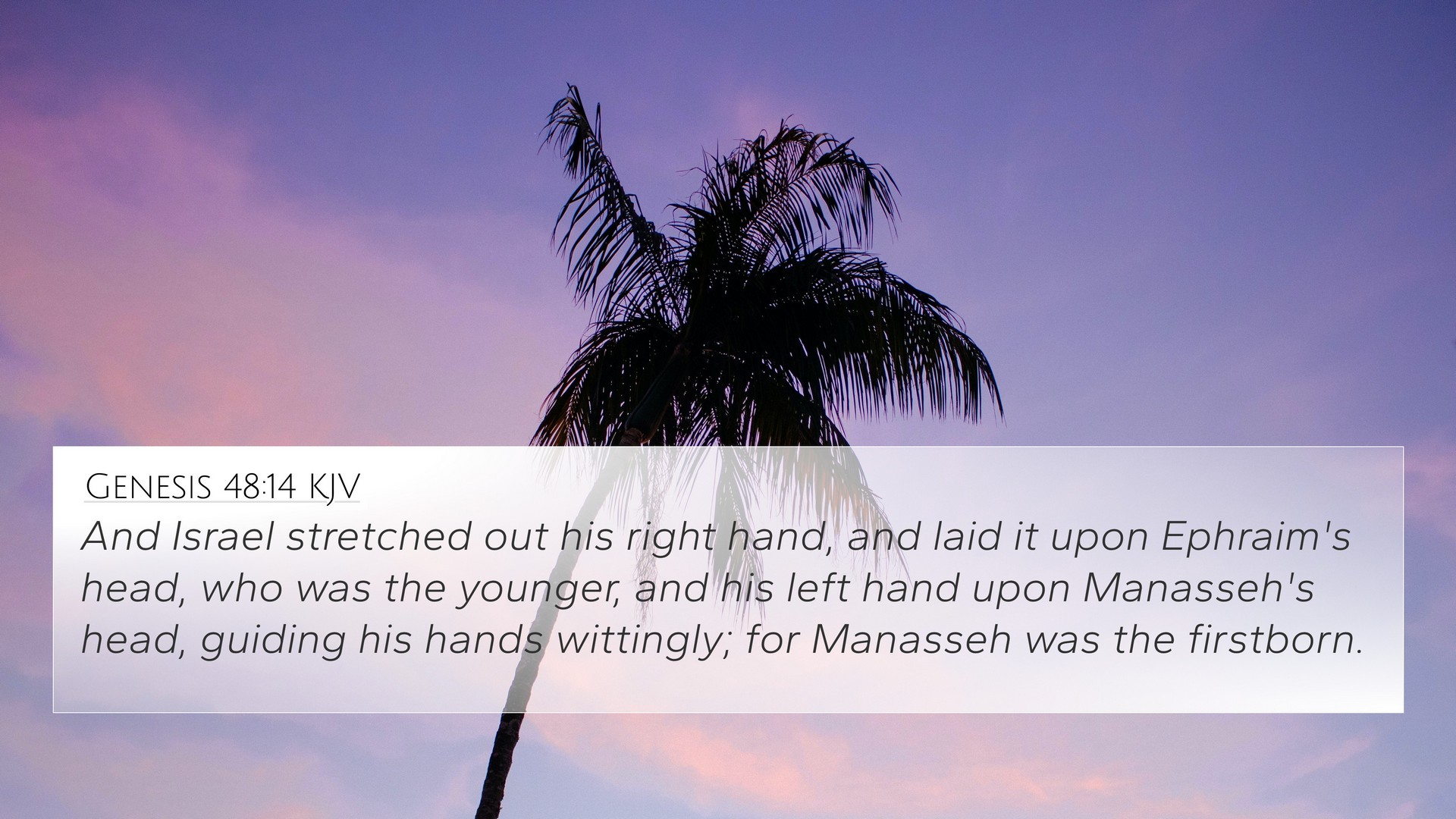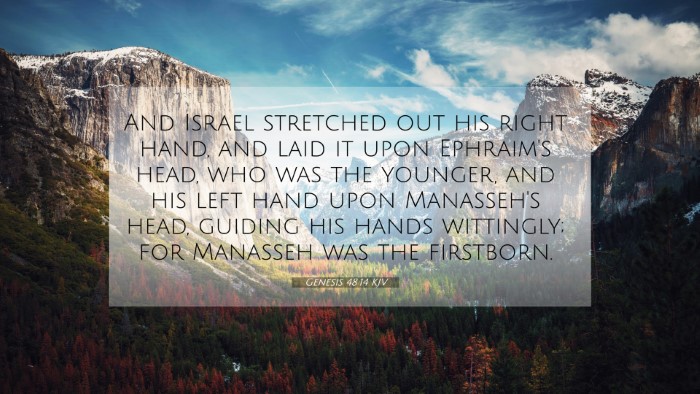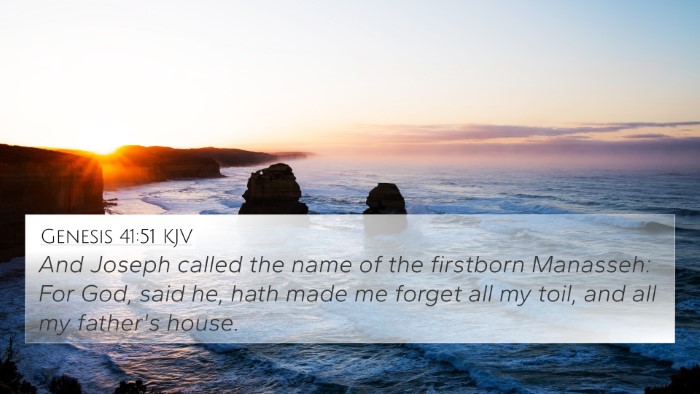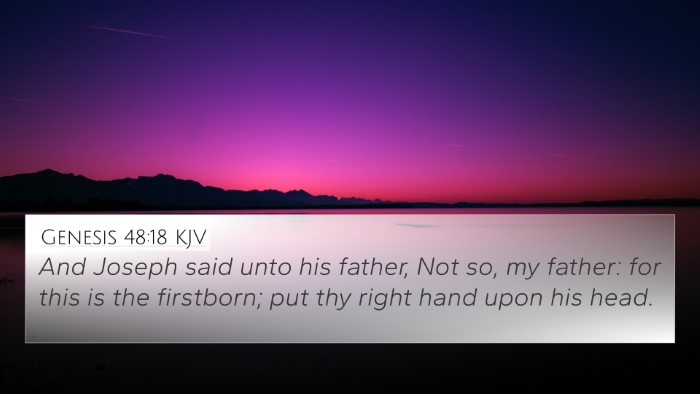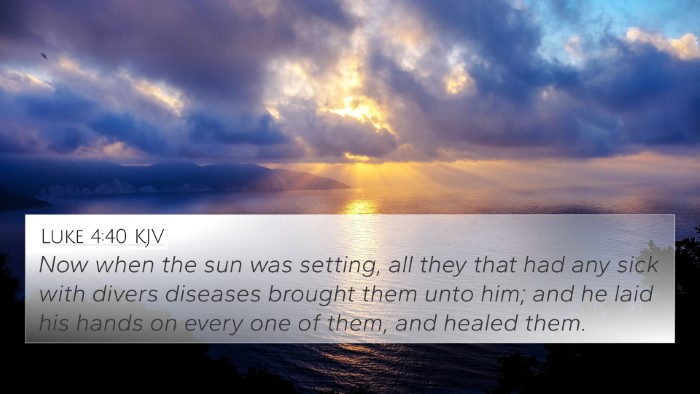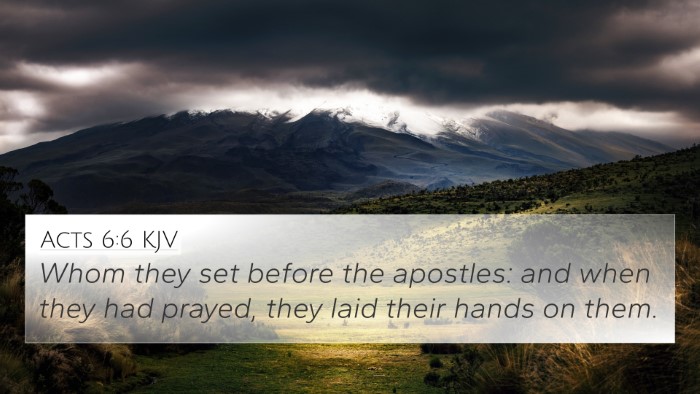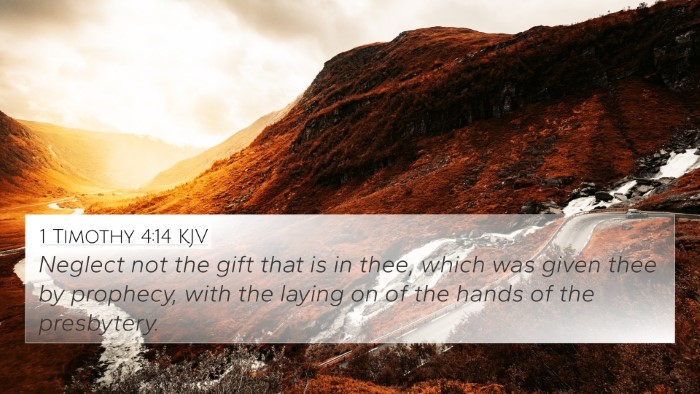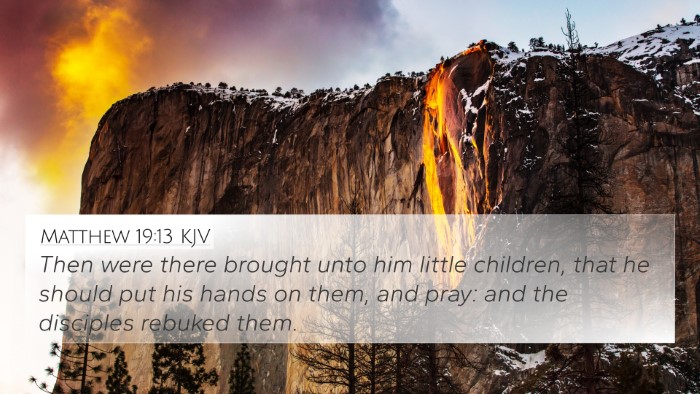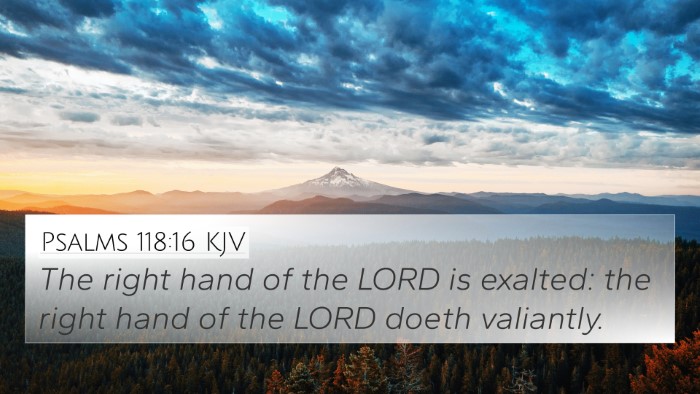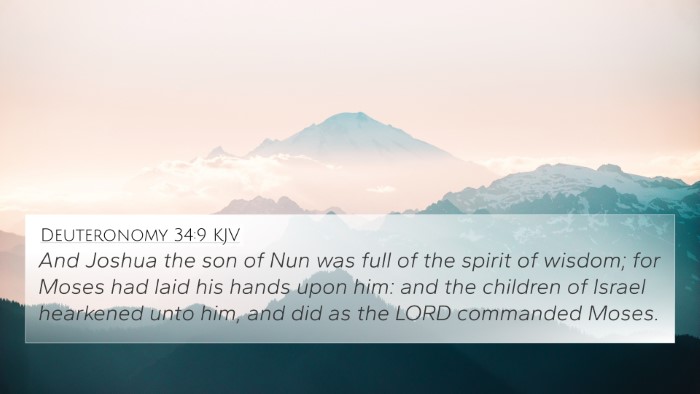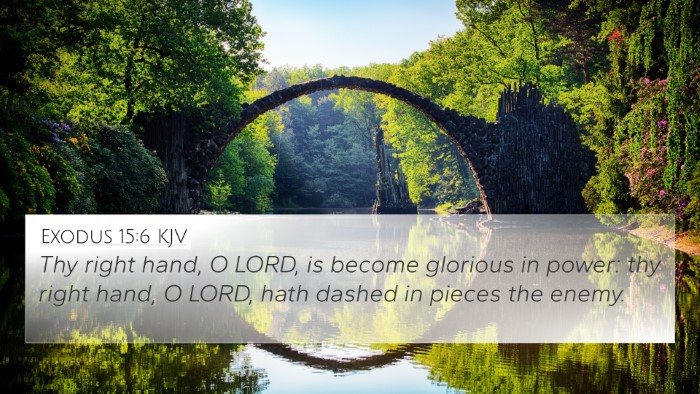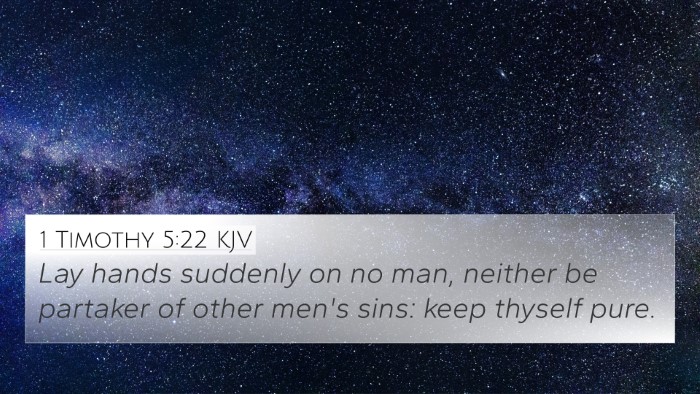Understanding Genesis 48:14
Genesis 48:14 states: "And Israel stretched out his right hand, and laid it upon the head of Ephraim, who was the younger, and his left hand upon Manasseh's head, guiding his hands wittingly; for Manasseh was the firstborn." This verse captures a significant moment in the blessing of Joseph's sons by their grandfather, Jacob, also known as Israel. Below, we will explore the meaning of this verse, its theological implications, and how it connects with other Biblical passages.
Verse Analysis
This passage illustrates Jacob’s intentional act of blessing Ephraim over Manasseh, despite Manasseh being the firstborn. Here are key points from various public domain commentaries:
- Matthew Henry: Henry emphasizes that Jacob's hands crossed as a representation of God's sovereign choice and election. He notes that God often chooses the weak and foolish things to confound the wise.
- Albert Barnes: Barnes explains that this act signifies God's blessing and favor toward Ephraim over Manasseh despite traditional customs, highlighting that God’s purposes often override human traditions.
- Adam Clarke: Clarke discusses the prophetic significance of the blessings, suggesting that Ephraim would become a great nation, foreshadowing a future prominence in Israel’s history.
Theological Implications
The blessing of Ephraim over Manasseh in Genesis 48:14 serves as a powerful reminder of God's grace and election. It invites reflection on the following themes:
- Sovereignty of God: The intentional crossing of Jacob's hands symbolizes that God's plans may differ from human expectations.
- Grace over Birthright: This blessing aligns with the idea of grace, where the younger is favored over the elder, reminiscent of other Biblical narratives (e.g., Isaac over Ishmael).
- Family and Legacy: Jacob's actions set a tone for how blessings are conveyed and demonstrate the importance of familial legacies in spiritual terms.
Cross-References
Genesis 48:14 can be linked with several other Bible verses that echo similar themes of God's election and blessings:
- Romans 9:11-13: Paul references God's sovereignty in choosing Jacob over Esau.
- 1 Chronicles 5:1-2: Highlights the lineage of Joseph, emphasizing consequences of Jacob's blessings.
- Hebrews 11:21: Reflects on Jacob's faith and his blessing of Joseph's sons, reinforcing the act's significance.
- Malachi 1:2-3: Again discusses God's love for Jacob and hatred for Esau, tying into themes of divine selection.
- Matthew 20:16: "So the last will be first, and the first last," echoing the theme of reversed expectations.
- Luke 1:52: "He has brought down the mighty from their thrones and exalted those of humble estate," reinforcing the concept of divine reversal.
- Exodus 12:2: Marks a new beginning for God’s people, paralleling God's choice in blessing Ephraim.
Connecting Themes in the Bible
The themes within Genesis 48:14 invite broader reflections on other Scriptural passages that speak of divine preference and the unexpected choices of God throughout the narrative of Scripture. The following insights are noteworthy:
- Old and New Testament Connections: The blessing of Ephraim can be compared to New Testament themes where Jesus often uplifts the marginalized.
- Grace and Election: The acts of God in choosing individuals for divine purposes are reflected across Biblical texts.
- The Role of Faith: Jacob’s faith in blessing Ephraim signifies trust in God’s providence, mirrored in the lives of biblical figures like David and Moses.
Conclusion
Genesis 48:14 encapsulates profound theological truths regarding God's sovereignty, the grace of unexpected blessings, and the significance of faith within family legacies. The interplay of these elements encourages believers to delve into the richness of Scripture and to seek deeper connections between verses. Through comprehensive Bible cross-reference materials and study tools, understanding such themes can vastly enhance one's spiritual journey.
Tools for Further Study
To explore Bible verse cross-references effectively, consider utilizing resources such as:
- Bible concordance to locate similar themes and verses.
- Bible cross-reference guides for systematic study.
- Cross-reference Bible study methods to analyze passages.
- Comprehensive Bible reference resources for a deeper understanding.
In conclusion, Genesis 48:14 serves as a rich text for theological reflection, bridging connections between various Biblical passages and emphasizing God's divine election and grace throughout biblical history.
